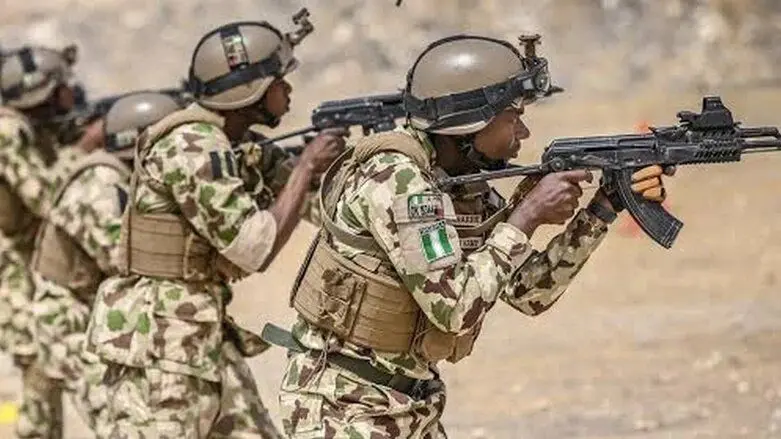In a dramatic turn of events, a high court in Abuja has declared the Lakurawa group a terrorist organization, banning its activities and sending shockwaves across Nigeria. But what does this ban truly mean? Is it a decisive step toward peace, or does it open a Pandora’s box of unintended consequences? Let’s unravel the mystery behind this landmark ruling and explore its far-reaching implications.
The Court’s Ruling: A Bold Move or a Double-Edged Sword?
On Thursday, Justice James Omotosho delivered a groundbreaking verdict, declaring the Lakurawa group and similar organizations as terrorist entities. The ruling, prompted by a case filed by Nigeria’s Minister of Justice, Lateef Fagbemi, marks a significant escalation in the government’s fight against insecurity in the north-west and north-central regions.
“The activities of the Lakurawa group and other similar groups that are harassing people in the north-west and north-central regions have been declared illegal and terrorist.”
Justice Omotosho
But beneath the surface of this bold move lies a web of complexities. What does it mean to ban a group, and how will this decision reshape Nigeria’s security landscape?
Six Key Implications of the Lakurawa Ban
Barrister Bulama Bukarti, a renowned lawyer and security researcher, has broken down the ruling into six critical implications. Each point reveals a layer of this unfolding mystery:
1. Prohibiting Contact with the Group
The ban makes it a serious offense to associate with the Lakurawa group in any way. “Joining such a group, supporting them, or even expressing sympathy on social media can now lead to severe penalties,” Bukarti explained. This shifts the legal landscape dramatically, as mere membership—once a gray area—now carries criminal consequences.
2. Confiscation of Assets
The group’s assets, including bank accounts, land, vehicles, and other properties, can now be seized by the government. “Everything they own is now fair game,” Bukarti noted. This move aims to cripple the group’s operational capabilities but raises questions about due process and property rights.
3. Empowering Security Forces
The declaration grants security forces broader powers to combat the group. “The military can now use heavy weapons and advanced intelligence-gathering methods that were previously off-limits,” Bukarti said. While this strengthens the fight against terrorism, it also raises concerns about potential overreach and abuse of power.
4. Restrictions on Aid Organizations
Humanitarian groups are now barred from providing assistance to the Lakurawa group. “This cuts off a potential lifeline for the group but also risks alienating communities caught in the crossfire,” Bukarti warned.
5. International Isolation
The ban aligns Nigeria with global counter-terrorism efforts. “International organizations like ECOWAS and the AU can now freeze the group’s assets and restrict their movements,” Bukarti explained. This global isolation further diminishes the group’s influence but also complicates diplomatic relations.
6. Social Stigma
The declaration tarnishes the group’s reputation, making it harder for them to recruit new members. “Young people will now think twice before joining a group labeled as terrorists,” Bukarti said. However, this stigma could also deepen existing divides within communities.
The Dark Side of the Ban: Unintended Consequences
While the ban is a significant step forward, Bukarti cautions that it comes with potential downsides:
- Human Rights Violations: Security forces may misuse their expanded powers, leading to excessive force or extrajudicial killings.
- Civilian Casualties: The use of heavy weapons in counter-terrorism operations risks harming innocent bystanders.
- No Room for Reconciliation: By labeling the group as terrorists, the government may have closed the door on potential peace talks, leaving little room for dialogue or reconciliation.
The Bigger Picture: What’s Next for Nigeria?
The ban on the Lakurawa group is a bold move, but it’s only one piece of a much larger puzzle. Will this decision bring lasting peace to the troubled regions, or will it ignite further conflict? Can the government balance security with human rights, or will the fight against terrorism come at the cost of civil liberties?
As Nigerians grapple with these questions, one thing is clear: the story of the Lakurawa ban is far from over. It’s a mystery that continues to unfold, with each development raising new questions and challenges.
Conclusion: A Mystery Unfolding
The ban on the Lakurawa group is a pivotal moment in Nigeria’s fight against terrorism. While it represents a decisive step toward restoring security, it also opens the door to a host of complex issues. As the nation watches and waits, the true impact of this ruling remains shrouded in mystery.
What do you think? Is the ban a necessary measure, or does it risk doing more harm than good? Share your thoughts in the comments below and join the conversation!



Your insights are refreshing and thought-provoking. I can’t wait to implement these tips!
I’m so glad you found the insights helpful! I appreciate your comment.
I didn’t realize how much I could improve my work until I read this post. Thank you!